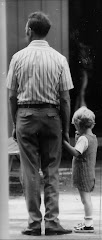Remember the Holodomor
The Soviet starvation of Ukraine, 75 years later
by Cathy Young
This year marks the 75th anniversary of one of the most horrific chapters in the history of the Soviet Union: the great famine the Ukrainians call Holodomor, "murder by starvation." This catastrophe, which killed an estimated 6 to 10 million people in 1932-33, was largely the product of deliberate Soviet policies. Inevitably, then, its history is fodder for acrimonious disputes.
Ukraine--which, with Canada and a few other countries, observed Holodomor Remembrance Day on November 23--seeks international recognition for a Ukrainian "genocide." Russia denounces that demand as political exploitation of a wider tragedy. Some Russian human rights activists are skeptical of both positions.
Meanwhile, the famine remains little known in the West, despite efforts by the Ukrainian diaspora. Indeed, the West has its own inglorious history with regard to the famine, starting with the deliberate cover-up by Pulitzer Prize-winning New York Times correspondent Walter Duranty.
In the late 1980s, the famine gained new visibility thanks to Robert Conquest's Harvest of Sorrow: Soviet Collectivization and the Terror-Famine (1987) and the TV documentary Harvest of Despair, aired in the United States and Canada. A backlash from the left was quick to follow. Revisionist Sovietologist J. Arch Getty accused Conquest of parroting the propaganda of "exiled nationalists." And in January 1988, the Village Voice ran a lengthy essay by Jeff Coplon (now a contributing editor at New York magazine) titled "In Search of a Soviet Holocaust: A 55-Year-Old Famine Feeds the Right." Coplon sneered at "the prevailing vogue of anti-Stalinism" and dismissed as absurd the idea that
the famine had been created by the Communist regime. Such talk, he asserted, was meant to justify U.S. imperialism and whitewash Ukrainian collaboration with the Nazis.
By the time Coplon wrote, however, the Soviet regime was dying. The partial opening of Soviet archives soon confirmed the extent to which Stalin and his henchmen knowingly used hunger to punish resistance and beat the peasantry into submission. Among the finds was a direct order by Stalin to cordon off starving villages and intercept peasants trying to flee in search of food. The post-Soviet leadership of both Russia and Ukraine was willing to acknowledge the Terror-Famine, though differences soon emerged on whether it should be regarded as a Ukrainian genocide or equal-opportunity mass murder.
Ukrainian-Russian relations began to deteriorate after the "Orange Revolution" of late 2004. Russia under Vladimir Putin was sliding deeper into authoritarianism and anti-Western nationalism, while Ukraine, led by President Viktor Yushchenko, sought closer ties to the West. Even as the political mood in Russia began to emphasize the alleged positive aspects of the Soviet past, Yushchenko promoted a view of Soviet-era Ukraine as a "captive nation" under a foreign boot.
In November 2006, the Ukrainian parliament passed a bill proclaiming the Holodomor a genocide and making Holodomor denial "unlawful." An escalation of rhetoric followed; a 2007 statement by the Russian Foreign Ministry accused "certain political circles" in Ukraine of insulting the memory of non-Ukrainian famine victims. Since then, the pro-government Russian press has published dozens of articles assailing Ukraine's stance on the Holodomor as an insidious anti-Russian ploy. This year, President Dmitry Medvedev declined an invitation to Holodomor Remembrance Day ceremonies in Kiev in a petulant letter that dismissed "talk of the so-called Holodomor" as an "immoral" attempt to give a shared tragedy a nationalist spin and also took a swipe at Ukraine's desire to join NATO.
Wednesday, December 10, 2008
Subscribe to:
Post Comments (Atom)
















No comments:
Post a Comment